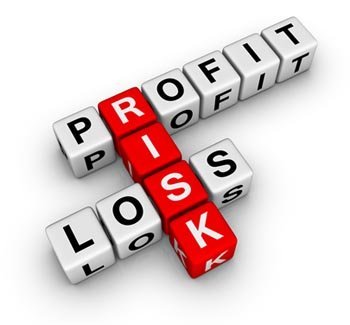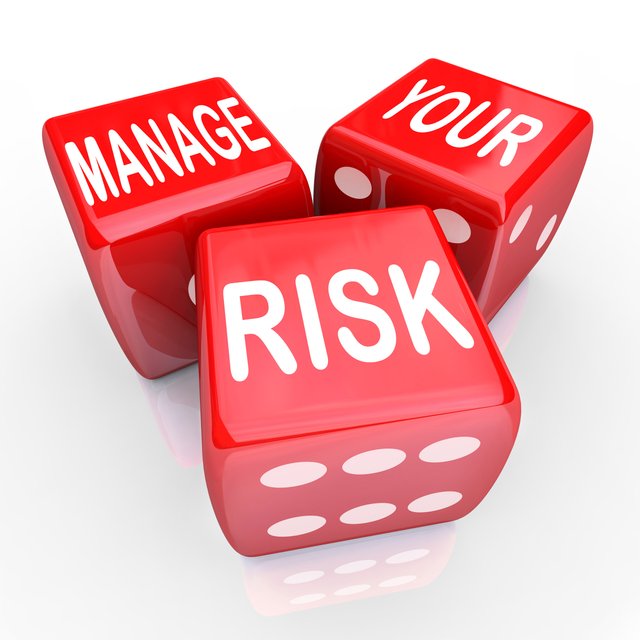Risk Management Will Save Your Life and Livelihood.

Few skills matter as much as judicious risk assessment. Bet wrong, and you can lose your money, your business, your reputation, your health or even your life. Learning how to evaluate risk and choose your risk-management options is a necessary life-management skill.
Adhere to four basic risk-taking principles:
1. “Right Size Your Risk”
Right-sizing your risk means determining its scope, which can be “monetary, emotional” or “measured in time, effort or energy.” To illustrate, “if you tend to get sleepy” after 30 minutes on the road, consider the ramifications of choosing a job that requires an hour’s commute each way. Obviously, this choice involves a heavy risk.
“There is no substitute for carefully considering the most negative scenario and how it might affect your life, and whether that pit in your stomach is a sign worth heeding.”
Compare this life choice with a less momentous one: You advise your soccer-playing daughter to try out for the open goalie position on her team. If it doesn’t work out, she can always return to playing midfielder. This counsel to your daughter involves minimal risk for her and for you.
“When approaching risk, act out of calculation, a component of ‘right timing,’ and be open to advice from a trusted source.”

2. “Right Time Your Risk”
Timing can be everything when you consider taking a risk. Introducing your new small-budget movie the same weekend that the latest Star Wars sequel debuts would be terrible timing. So would going fishing in the middle of a hurricane or putting your house on the market just as every other homeowner on your block does the same.
“We should never discount our own knowledge, training and skepticism when making investments.”

3. “Rely on Knowledge, Skill and Experience”
People with no experience in a field are likely to fail. Taking on work for which you have no training or expertise is a prescription for maximum risk and minimum likelihood of success. However, people with deep knowledge and extensive experience can minimize their risk and maximize their chances of success if they stick to their specialized expertise.
“Lack of skepticism is deadly, but…a positive bias is valuable, since the market has increased over time, and excess cynicism can easily paralyze you into inaction.”
“Some people probably take too many risks and some take too few risks. The extent to which you are gambling is not necessarily determined by the outcome.” (analyst and investor Gary Belthorpe)

4. “Maintain a Healthy Skepticism”
Carefully detailed financial projections, arrayed neatly on spreadsheets, can seriously impress onlookers. But that doesn’t mean the figures are accurate or honest or reflect the real world. That’s why you should always be skeptical of forecasts or projections. Be willing to ask tough questions of the person who provides the numbers and to leave if things don’t seem right.
“The process of recounting the benefits of a deal that’s too good to be true can reveal its shortcomings.”
When you face speculative financial data, evaluate the individual providing the information. Can you trust this person? Does he or she have ulterior motives in convincing you to take action based on the data? How likely or unlikely is the conclusion the information suggests? “Applying appropriate skepticism means being unafraid to raise questions, taking your time while you come to a conclusion and walking away if you cannot become comfortable with the response.

Risk-Management Tips
To plan and manage your investments, business affairs and life decisions, consider these tips:
- If you plan to start your own firm, make sure you have sufficient capital.
- Reputation is an area of major risk for new entrepreneurs (and the same goes for new writers). Public regard can plummet if a new venture fails. Business failure comes with its own psychological risks.
- Entrepreneurs whose start-ups rely on only a couple of large customers take major risks.
- Entrepreneurs may invest too heavily in infrastructure prior to generating revenues.
- Smart investors know financial markets take a new direction prior to any directional shift in economic fundamentals. The risk comes in knowing when to place your financial bet.
- Failing to make a move outweighs the risks of acting, no matter what you do. At such moments, summon your courage and act. Sitting on your hands is not the answer.
- Investing in stocks carries risk, which magnifies when you short a stock – that is, when you bet its price will fall. If you misjudge, you must cover the price, no matter what it is.
- Always stay a bit cynical about relationships with your colleagues. A change or two in people’s job titles could seriously alter these dynamics.
- The “active management” philosophy of handling funds contends that stock pricing is inefficient. Astute investors purchase stocks before the “market” becomes aware that the stock is mispriced. Minimize risk by deeply understanding the value of the companies that interest you and their stocks.
- Every major decision you make involves risk.

I upvoted You
nice post. This also applies to steemit
Congratulations @shiba! You have received a personal award!
Click on the badge to view your Board of Honor.
Congratulations @shiba! You received a personal award!
You can view your badges on your Steem Board and compare to others on the Steem Ranking
Vote for @Steemitboard as a witness to get one more award and increased upvotes!
Upvoted